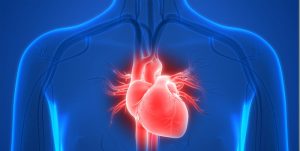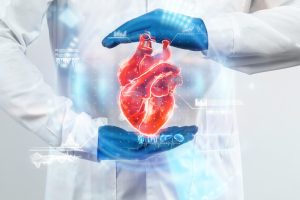Heart transplant
A heart transplant, which is otherwise known as a cardiac transplant, is a form of surgical transplant procedure involving patients with end-stage heart failure or severe coronary artery disease, in whom all the other forms of medical and surgical treatment have been unsatisfactory.

The common procedure until 2018 was the harvesting of a healthy functioning heart from an organ donor, which may have either the brain already dead, together with the two lungs, or alone. This harvested organ was subsequently transplanted into the patient. The patient’s own heart is either removed and replaced with the donor heart orthotopic procedure or, much less commonly, the recipient’s diseased heart is left in place to support the donor heart.
Rejection of the donor’s heart
The most frightening complication after a heart transplant is that your body will reject the donor’s heart. Your immune system may consider the donor heart a foreign object and try to deny it which may damage your heart. Every recipient of a transplant heart receives immunosuppressive rejection-preventing medications therefore, the rate at which the organ is being rejected is constantly decreasing.
Sometimes, a medication change will stop the organ rejection if it happens.
This prevents rejection, and you must ensure that you follow your prescribed medication and do not fail to see your doctor whenever he calls for an appointment. In some cases, there is no sign of a rejection; therefore, this is how you will get to know if your body is rejecting the new heart. You will have numerous heart biopsies after transplant within the first year. From then onwards, the biopsies will rarely be done.
Arterial problems
After the transplant, your heart’s artery walls may be thickened and hardened possibly leading to cardiac allograft vasculopathy. This is likely to make it difficult to move blood around inside your heart.
Heart transplantation
Heart transplant surgery by Mayo Clinic surgeons. This open-heart surgery, on your heart, may last a few hours. When previously, you have undertaken various other heart surgeries, its procedure is complex. To sleep under general anesthetic for this procedure, drugs have been administered.
Surgeons in operation attach your case to a heart-lung bypass machine as long as oxygen-rich blood flows into the body and veins. Your surgeon makes an incision into the chest, separate your chest bone, or spreads apart the rib cage to perform open surgery on your heart. Your surgeon will now remove the diseased heart and sew in the donor’s heart. Your surgeon will then attach major blood vessels to the donor’s heart. The new heart often begins beating on its own when blood circulation resumes. Sometimes an electric shock is needed to start beating the donor’s heart in a normal rhythm.
Procedure after surgery
You will be staying in the ICU for a few days. Then, you will be transferred to a regular room in the hospital. You may probably stay in the hospital for a week or two. The time one spends in the ICU and hospital differs from one person to another.
You will be followed up at home by your transplant team after discharge from the hospital. Because the monitoring will be very intense and of frequent follow-up, many patients prefer to stay as close to the transplant center as possible for at least three months. Subsequent visits are less frequent after that, and traveling also becomes easy.
You will also undergo monitoring for signs or symptoms of rejection such as the onset of shortness of breath fever fatigue a decrease in urine output or weight gain. You report any symptoms or signs of rejection and infection to your transplant team.

Physical venture
Regular exercises will help control your blood pressure, reduce stress, and maintain a healthy weight to make bones stronger, and your physical functions. The treatment team develops an exercise program suited to your needs and desires. You will engage in cardiac rehabilitation that helps increase your endurance, strength, and energy. Cardiac rehabilitation is meant to help restore your health and enable recovery after the heart transplant.
Once your heart transplant is done, you may need to live under dietary adjustments to keep it healthy and performing well.
Diet and exercise can ensure you maintain a weight that prevents complications like high blood pressure, heart disease, or diabetes.
A nutrition doctor can discuss your dietary needs with you and answer any questions you may have after your transplant. You will have a few healthy food options and ideas to use your eating plan.
Heart transplants aren’t luck for everyone. Your new heart can fail for several reasons. Your doctor might then suggest adjusting your medications or, in more acute cases, having another heart transplant.
If you have few or no other treatment options, then you may choose to terminate the treatment. You have to discuss your expectations about treatment, emergency care, as well as end-of-life care with your heart transplant team, doctor, as well as family.
Most patients who have undergone heart transplants live a normal life. you may be able to do all your daily activities, work, hobbies, sports, relax, and exercise. Speak with your doctor about what activity you can do safely.
A woman who has had a heart transplant is likely fertile.
However, discuss with your provider if you want to become pregnant and are planning pregnancy after the transplant. You will probably need alteration in some drug regimens before conception since some drugs may be harmful to pregnancy.
Survival after a heart transplant varies depending on many factors. Survival still seems promising even in advanced ages and at greater risk during heart transplantation for its recipients. The global survival rate in adults is roughly about 90% in one year and approximately 80% within five years of post-transplantation.

CONCLUSION
Heart transplantation is the final standard surgical intervention in patients who suffer from intractable heart failure.
However, the donation of organs limits the extent of work done by the higher percentage of heart transplantations, and this is on the rise for the implementation of mechanical circulatory assist devices. A heart transplant is a type of surgery where a patient diseased heart is surgically removed and replaced with the healthy heart of an organ donor. To remove the heart from the donor, one requires that two or more healthcare providers declare the brain-dead donor.
